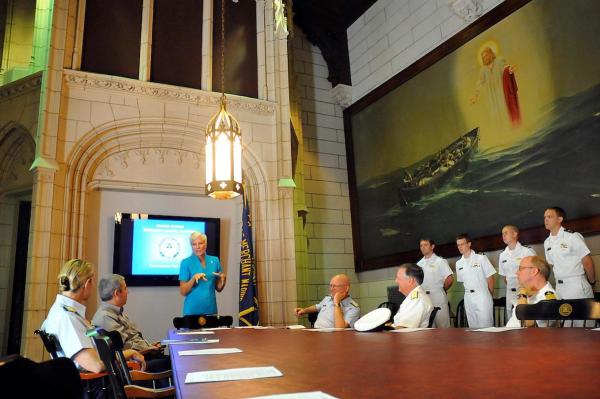Ex-Anorexic Christian Woman: The Battle Is in the Mind; God's Image Is Diverse
After penning her struggle with anorexia as a teenager in her first book, Hollow: An Unpolished Tale, Jena Morrow received such an overwhelming response from men and women alike that she wrote a devotional to help individual with eating disorders and body image issues find hope and healing in the midst of their battle.
Hope for the Hollow: A Thirty-Day Inside-Out Makeover for Women Recovering from Eating Disorders is a devotional guide meant to encourage and inspire women to accept the truth of God's word as it applies to their bodies. The book includes 30 devotionals that share an applicable passage of Scripture dealing with the underlying themes of eating disorders such as guilt, shame, control, fear and pride.
"The response to the first book was so overwhelming. I met so many women and men who were struggling with an eating disorder or who had been in recovery," said Morrow. "There was such a need for a message of hope. The devotional was placed in my spirit and I went from there. I wanted to offer bite-size pieces of encouragement."
Eating disorders are becoming more prevalent with more than 11 million Americans suffering from anorexia, bulimia, and binge eating disorder. The Diagnostic and Statistical Manual of Mental Disorders (DSM) has recognized binge eating as a disorder.
Although there have been numerous organizations launched within recent years to spread awareness as well as media campaigns to address the issue among teenage and young adult women, Morrow believes that the fight to combat eating disorders has just begun.
"I do see good things happening within the media. However, our young women receive double messages. There may be a love your body story on the front of a magazine yet images of very underweight models or certain body types that are more accepted. This causes a lack of trust with our young women. They doubt themselves and question which messages they should believe."
Young women that battle with eating disorders are often victims of low self-esteem and depression. The National Institute of Diabetes and Digestive and Kidney Diseases says as many as half of all patients diagnosed with binge eating disorder have a history of depression.
Morrow explained to CP that young women have to break their silence in order to start the healing process. She encourages finding a trusted person that one can receive honest, truthful feedback and to get counseling. "The battle is in the mind. There is a lot of secrecy and shame with eating disorders. Talking will take the power away from the disease."
Therapists suggest that people who are suffering from eating disorders have a long journey of recovery. Not only will they have to deal with the physical rehabilitation but also the rebuilding of their minds and spirits. Therapists encourage patience in the process of healing.
"This is a process. We are God's handiwork. We are his masterpiece. We were created in His image which means that His image is diverse. We have been conditioned by society to believe certain things about ourselves. Now we have to be reconditioned by God's word," Morrow stated.






















